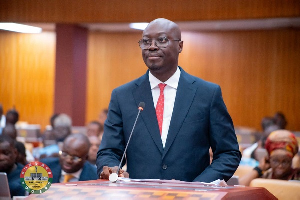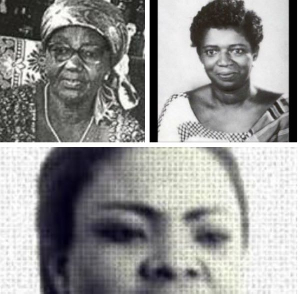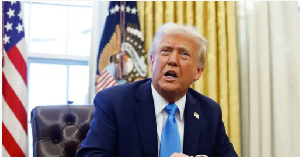On June 28, 1960, Ghana’s first parliament opened with a historic representation of 10 women.
These remarkable women, namely, Susanna Alhassan, Ayaoni Bukari, Victoria Nyarko, Sophia Doku, Mary Koranteng, Grace Ayensu, Christiana Wilmot , Comfort Asamoah, Lucy Anin and Regina Asamany, took their places alongside men in the house of legislature at that time.
The election of these women was made possible by the Representation of the People’s Women Bill introduced by the Convention People’s Party (CPP).
The bill was passed and assented to by the Governor-General on June 16, 1960, ahead of Ghana’s transition to republican status.
According to a book by the former Chairman of the National Media Commission, Kabral Blay-Amihere, titled "1947–1957: The Story of Ghana’s Independence," he stated that the election of these women, who were all members of the CPP, was made possible by a special bill.
The book further detailed that these 10 women were elected by the National Assembly to fill specially created seats as part of efforts to expose women to parliamentary life.
Their membership in Parliament, he stated, was a long overdue recognition of the sacrifices of Ghanaian women and their roles in national movement.
The book pointed out that the system of election was not intended to be permanent, as the act made no provision for filling a vacancy caused by the death, resignation, or expulsion of a woman member.
It added that all ten female MPs of the first Republic Parliament were not there by accident or tokenism by the Kwame Nkrumah government, but rather by merit.
“They had arrived at the pivot of their own political career on their own merit as part of the Nationalist Movement and members of the CPP who had fought for independence but had been marginalized by representation in that epoch of male dominance in the Legislative Assemblies of 1951, 1964 and 1956.
“They had contributed immensely to the electoral fortunes of their male counterparts. They represented a new dimension of politics in Ghana in which women would have representation in the decision-making process at all levels.
“Their membership in Parliament was, in many ways, a long-time recognition of the sacrifices of Ghanaian women and their role in the nationalist movement, which many commentators had failed to accept," as quoted in the book, "1947-1957: The Story of Ghana’s Independence."
It further stated that on the attainment of independence, a British newspaper, the Manchester Guardian, attributed the success of the nationalist struggle in the country to a male-dominated elite and one high school in the country.
It added that while the educated elites must be recognised, CLR James, who wrote for the paper, argued that the feat could not have been achieved without the unique contributions of women.
“In the struggle for independence, one market woman in Accra, and there were 15,000 of them, was worth my Achimota graduates. The highly educated ones were either hostile to Nkrumah and his party or stood aside.
“The social forces that made the revelation were the workers, the market women, and the stratum of youth educated in primary schools, which had not been subjected to the influence of British education,” as quoted in the book, 1947-1957: The Story of Ghana’s Independence.
The book also shed light on the role women played in bringing about cohesion and national unity in the CPP.
JKB/AE
Watch the latest episode of Everyday People on GhanaWeb TV below:
Politics of Monday, 2 September 2024
Source: www.ghanaweb.com
Ghana’s first Parliament and the 10 CPP women who made history
Meet the trader who says it’s better to educate your children than build a house | Everyday People
0 seconds of 9 minutes, 50 secondsVolume 90%
Press shift question mark to access a list of keyboard shortcuts
Keyboard Shortcuts
Shortcuts Open/Close/ or ?
Play/PauseSPACE
Increase Volume↑
Decrease Volume↓
Seek Forward→
Seek Backward←
Captions On/Offc
Fullscreen/Exit Fullscreenf
Mute/Unmutem
Decrease Caption Size-
Increase Caption Size+ or =
Seek %0-9
Business












